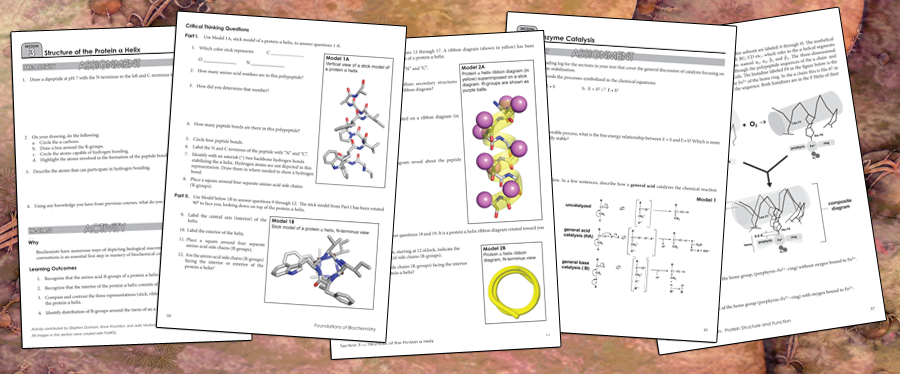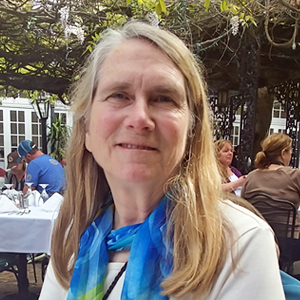|
Forwards (To the Student, To the
Instructor) 1 Chemistry in an
Aqueous Environment
2 Amino Acids
and the Primary Structure of
Proteins 3 Structure of the
Protein α Helix
4 3-D Structure
of Proteins
5 Tools of Biochemistry
6 Problem-Solving Challenge: LWBGase 7 Problem-Solving Challenge: Working
with Proteins 8 Hemoglobin:
Protein Structure and Function 9 Enzyme Catalysis10 Enzyme Kinetics 11 Enzyme Inhibition 12 Enzyme
Problems 13 Carbohydrates and
Glycoproteins 14 Lipid Structure
and Function 15 Membranes and
Transmembrane Proteins 16
Membrane Proteins — Interpreting a
Research Paper 17 Transmembrane
Proteins Problem 18 Problem
Solving 19 DNA and the Central
Dogma 20 Higher Order Structure of
Nucleic Acids |
21 Understanding the Rate
Determining Step in a Metabolic
Pathway 22 Understanding Complex
Chemical Systems in Living Organisms
23 Understanding Metabolically
Far From Equilibrium Reactions
24 High Energy Compounds 25 Enzymes in Glycolysis 26 Regulation of Glycolysis and
Gluconeogenesis 27 Metabolic and
Hormonal Control in Glycolysis and
Gluconeogenesis 28 Regulation of
Glycogen Storage and Breakdown 29 Glycolysis and Gluconeogenesis
Problem Solving 30 Glycolysis and
Gluconeogenesis Problem Solving,
Part 2 31 Pentose Phosphate
Pathway 32 Exploring Pyruvate
Dehydrogenase and the Citric Acid
Cycle 33 Exploring the Citric
Acid Cycle 34 Electron Transport 35 Oxidative Phosphorylation 36 Fatty Acid Degradation and Glucose
Synthesis 37 Understanding Fatty
Acid Biosynthesis 38 The Urea
Cycle and the Effects of Protein
Degradation 39 Integrated
Metabolism |





